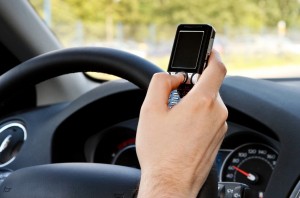 In 2010, 3,092 people died from accidents related to distracted driving, and by 2011, that number increased to 3,331. The growing number of fatalities caused by drivers’ inattention to the road has raised much concern about this growing epidemic. With more technology available than ever before, how can anyone ignore it even from behind the wheel?
In 2010, 3,092 people died from accidents related to distracted driving, and by 2011, that number increased to 3,331. The growing number of fatalities caused by drivers’ inattention to the road has raised much concern about this growing epidemic. With more technology available than ever before, how can anyone ignore it even from behind the wheel?
In an effort to prevent distracted driving accidents, the National Highway Traffic Safety Administration (NHTSA) has recently issued voluntary guidelines to automakers. These guidelines encourage all car manufacturers to create a built-in car system that limits the following in-car technology while in motion: info-tainment systems, navigational systems, and mobile phone communication (only when connected to the built-in system). The government wants to ensure that drivers will not take their eyes off the road for more than 2 seconds and will complete a task within 12 seconds total.
Although these guidelines are the first attempt to modify vehicles to reduce distracted driving, not all driving distractions are caused by built-in technology. According to USA Today, only 2% of distracted driving accidents were caused by a car’s built-in system, which leaves 98% of distracted driving accidents caused by other factors (cell phones, daydreaming, etc). Also, concerns were raised that placing a limit on built-in car technology will only cause drivers to not connect mobile phones to the built-in system.
Since these optional guidelines will take effect in three years, it is quite unclear as to how effective these in-car technology limitations will be in reducing distracted driving accidents. We applaud the government’s efforts in reducing distracted driving fatalities, but also want to encourage further consideration in dealing with more prominent distractions, such as cell phones.
If you or a loved one were injured as a result of a distracted driver, do not wait to call the San Diego auto accident attorneys at the Jurewitz Law Group Injury & Accident Lawyers. Call us at (888) 233-5020 for a free initial consultation.


